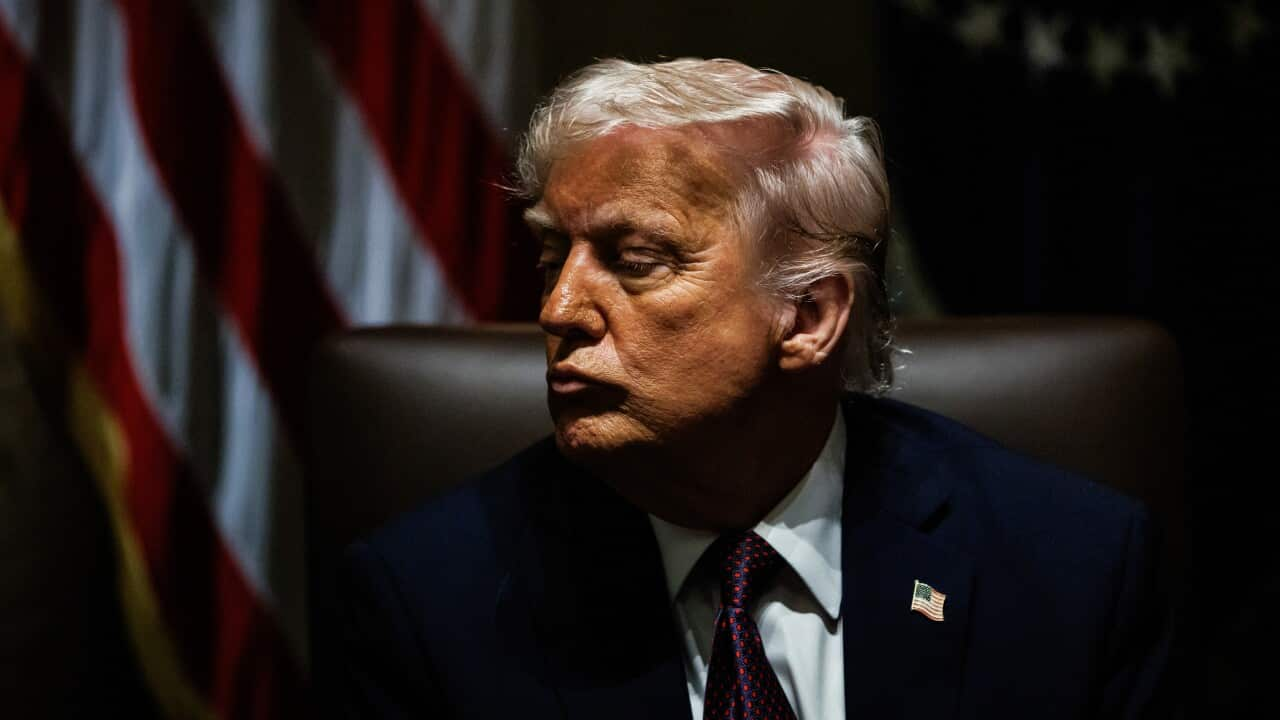President Donald Trump says that Americans want him to run for another term, a step banned by the US constitution but which he continues describing as possible.
"I'm not joking" about the idea of seeking a third term, Trump said on Monday an interview with NBC News.
"People are asking me to run," Trump told reporters in the Oval Office later on Monday when asked about the possibility of a third term.
The 78-year-old Republican served from 2017 to 2021 and began his second term in the White House on 20 January.
Here's what to know about the legal barriers Trump would face by seeking a third term.
What does the US constitution say?
The 22nd Amendment states in part: "No person shall be elected to the office of the President more than twice."
The amendment was ratified in 1951 after Franklin D Roosevelt broke with a self-imposed two-term limit set by presidents since the nation's first president, George Washington.
Roosevelt, a Democrat who was president during the Great Depression and World War Two, served a third term and then died months into his fourth term in 1945.
Wayne Unger, a law professor at Quinnipiac University in the US, said the constitution was clear that presidents are limited to two terms of four years each. He said that while that had not been tested in court, any challenge by Trump would likely be unsuccessful.
"I would predict the supreme court to say nope, it's clear, two terms of four years each, Donald Trump, you cannot run for a third," said Unger, who teaches constitutional law.
Can Trump's allies change the US constitution?
Yes, but that is highly unlikely in an era of intense political polarisation between Democrats and Trump’s Republican Party.
Any constitutional amendment would require two-thirds support in the House of Representatives and Senate or a convention called by two-thirds of the states, and then ratification by 38 of the 50 state legislatures.
Republicans hold a razor-thin 218-213 majority in the House and a 53-47 majority in the Senate. Republicans control 28 state legislatures.
Andy Ogles, a Republican US representative from Tennessee and a strong Trump supporter, in January proposed amending the 22nd Amendment to allow people to serve three non-consecutive terms as president.
Since Trump's terms beginning in 2017 and in 2025 were non-consecutive, the amendment — if passed — would allow him to serve a third term starting in 2029.
At 82 years and seven months old, Trump will already be the oldest US president ever at the end of his second term in January 2029.
Democrat Joe Biden was 82 years and two months old when he left office in January.
Could Donald Trump run as vice president?
In an interview with NBC, Trump said one possibility would be for his vice president, JD Vance, to run for president in 2028 with Trump as his vice-presidential candidate.
Vance would then resign as president if he wins, paving the way for Trump to return to the White House.
But Trump would barred from running for vice president because wouldn't be eligible to be president. The 12th Amendment to the US Constitution reads: "No person constitutionally ineligible to the office of President shall be eligible to that of Vice-President of the United States."



